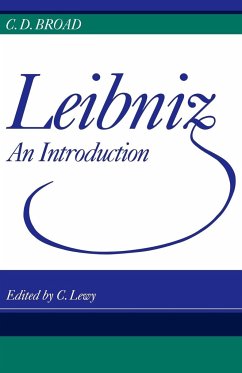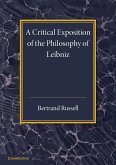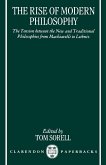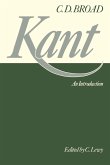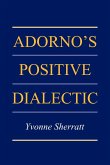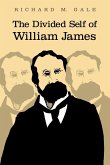- Broschiertes Buch
- Merkliste
- Auf die Merkliste
- Bewerten Bewerten
- Teilen
- Produkt teilen
- Produkterinnerung
- Produkterinnerung
Broad's characteristically shrewd survey of Leibniz provides a very clear, detailed and orderly guide to a notoriously difficult philosophical system.
Andere Kunden interessierten sich auch für
![A Critical Exposition of the Philosophy of Leibniz A Critical Exposition of the Philosophy of Leibniz]() Bertrand RussellA Critical Exposition of the Philosophy of Leibniz37,99 €
Bertrand RussellA Critical Exposition of the Philosophy of Leibniz37,99 €![The Rise of Modern Philosophy The Rise of Modern Philosophy]() Tom Sorell (ed.)The Rise of Modern Philosophy77,99 €
Tom Sorell (ed.)The Rise of Modern Philosophy77,99 €![Leibniz Leibniz]() John Theodore MerzLeibniz21,99 €
John Theodore MerzLeibniz21,99 €![Kant Kant]() O. D. BroadKant48,99 €
O. D. BroadKant48,99 €![Adorno's Positive Dialectic Adorno's Positive Dialectic]() Yvonne SherrattAdorno's Positive Dialectic37,99 €
Yvonne SherrattAdorno's Positive Dialectic37,99 €![The Reception of Kant's Critical Philosophy The Reception of Kant's Critical Philosophy]() Sally Sedgwick (ed.)The Reception of Kant's Critical Philosophy58,99 €
Sally Sedgwick (ed.)The Reception of Kant's Critical Philosophy58,99 €![The Divided Self of William James The Divided Self of William James]() Richard M. GaleThe Divided Self of William James56,99 €
Richard M. GaleThe Divided Self of William James56,99 €-
-
-
Broad's characteristically shrewd survey of Leibniz provides a very clear, detailed and orderly guide to a notoriously difficult philosophical system.
Hinweis: Dieser Artikel kann nur an eine deutsche Lieferadresse ausgeliefert werden.
Hinweis: Dieser Artikel kann nur an eine deutsche Lieferadresse ausgeliefert werden.
Produktdetails
- Produktdetails
- Verlag: Cambridge University Press
- Seitenzahl: 188
- Erscheinungstermin: 1. April 2010
- Englisch
- Abmessung: 216mm x 140mm x 10mm
- Gewicht: 245g
- ISBN-13: 9780521099257
- ISBN-10: 0521099250
- Artikelnr.: 26626957
- Herstellerkennzeichnung
- Libri GmbH
- Europaallee 1
- 36244 Bad Hersfeld
- gpsr@libri.de
- Verlag: Cambridge University Press
- Seitenzahl: 188
- Erscheinungstermin: 1. April 2010
- Englisch
- Abmessung: 216mm x 140mm x 10mm
- Gewicht: 245g
- ISBN-13: 9780521099257
- ISBN-10: 0521099250
- Artikelnr.: 26626957
- Herstellerkennzeichnung
- Libri GmbH
- Europaallee 1
- 36244 Bad Hersfeld
- gpsr@libri.de
Editor's preface
Abbreviations
Part I. Life and Works
Part II. General Principles Used by Leibniz: 1. Predicate-in-Notion Principle
2. Principle of sufficient reason
3. Is the Predicate-in-Notion Principle compatible with contingency?
4. Comments on the Predicate-in-Notion Principle
5. Principle of Sufficient Reason, contingency, and infinite complexity
6. Denial of relations
7. Identity of Indiscernibles
8. The Principle of continuity
9. Denial of transeunt causation
Part III. Leibniz's Theory of Corporeal Substances: 1. Background of Leibniz's theories
2. Extension and motion
3. Relativity of space, time and motion
4. Dynamical properties of bodies
5. Endless divisibility
6. Argument for substantial forms for the Predicate-in-Notion Principle
7. Substantial forms and organic bodies are ingenerable and incorruptible
Part IV. Theory of Monads: 1. Monads and entelechies
2. Corporeal substance is a phenomenon bene fundatum
3. Plurality of substances
4. Characteristics of monads
5. Pre-established harmony
6. The three kinds of monad
7. The real foundation of the various bodily phenomena
8. Theory of organisms
9. Apparent interaction of body and mind
10. The Viniculum Substantiale
Part V. Psychology and the Theory of Knowledge: 1. Conscious and unconscious experiences
2. The innate and the a priori
3. Sensation and sense-perception
4. Conative and affective experiences
Part VI. Ethics
Part VII. Theology: 1. God's nature and relations to the world
2. Existence of God
3. Defence of God's character
4. The Kingdom of Ends
Bibliographical note
Index.
Abbreviations
Part I. Life and Works
Part II. General Principles Used by Leibniz: 1. Predicate-in-Notion Principle
2. Principle of sufficient reason
3. Is the Predicate-in-Notion Principle compatible with contingency?
4. Comments on the Predicate-in-Notion Principle
5. Principle of Sufficient Reason, contingency, and infinite complexity
6. Denial of relations
7. Identity of Indiscernibles
8. The Principle of continuity
9. Denial of transeunt causation
Part III. Leibniz's Theory of Corporeal Substances: 1. Background of Leibniz's theories
2. Extension and motion
3. Relativity of space, time and motion
4. Dynamical properties of bodies
5. Endless divisibility
6. Argument for substantial forms for the Predicate-in-Notion Principle
7. Substantial forms and organic bodies are ingenerable and incorruptible
Part IV. Theory of Monads: 1. Monads and entelechies
2. Corporeal substance is a phenomenon bene fundatum
3. Plurality of substances
4. Characteristics of monads
5. Pre-established harmony
6. The three kinds of monad
7. The real foundation of the various bodily phenomena
8. Theory of organisms
9. Apparent interaction of body and mind
10. The Viniculum Substantiale
Part V. Psychology and the Theory of Knowledge: 1. Conscious and unconscious experiences
2. The innate and the a priori
3. Sensation and sense-perception
4. Conative and affective experiences
Part VI. Ethics
Part VII. Theology: 1. God's nature and relations to the world
2. Existence of God
3. Defence of God's character
4. The Kingdom of Ends
Bibliographical note
Index.
Editor's preface
Abbreviations
Part I. Life and Works
Part II. General Principles Used by Leibniz: 1. Predicate-in-Notion Principle
2. Principle of sufficient reason
3. Is the Predicate-in-Notion Principle compatible with contingency?
4. Comments on the Predicate-in-Notion Principle
5. Principle of Sufficient Reason, contingency, and infinite complexity
6. Denial of relations
7. Identity of Indiscernibles
8. The Principle of continuity
9. Denial of transeunt causation
Part III. Leibniz's Theory of Corporeal Substances: 1. Background of Leibniz's theories
2. Extension and motion
3. Relativity of space, time and motion
4. Dynamical properties of bodies
5. Endless divisibility
6. Argument for substantial forms for the Predicate-in-Notion Principle
7. Substantial forms and organic bodies are ingenerable and incorruptible
Part IV. Theory of Monads: 1. Monads and entelechies
2. Corporeal substance is a phenomenon bene fundatum
3. Plurality of substances
4. Characteristics of monads
5. Pre-established harmony
6. The three kinds of monad
7. The real foundation of the various bodily phenomena
8. Theory of organisms
9. Apparent interaction of body and mind
10. The Viniculum Substantiale
Part V. Psychology and the Theory of Knowledge: 1. Conscious and unconscious experiences
2. The innate and the a priori
3. Sensation and sense-perception
4. Conative and affective experiences
Part VI. Ethics
Part VII. Theology: 1. God's nature and relations to the world
2. Existence of God
3. Defence of God's character
4. The Kingdom of Ends
Bibliographical note
Index.
Abbreviations
Part I. Life and Works
Part II. General Principles Used by Leibniz: 1. Predicate-in-Notion Principle
2. Principle of sufficient reason
3. Is the Predicate-in-Notion Principle compatible with contingency?
4. Comments on the Predicate-in-Notion Principle
5. Principle of Sufficient Reason, contingency, and infinite complexity
6. Denial of relations
7. Identity of Indiscernibles
8. The Principle of continuity
9. Denial of transeunt causation
Part III. Leibniz's Theory of Corporeal Substances: 1. Background of Leibniz's theories
2. Extension and motion
3. Relativity of space, time and motion
4. Dynamical properties of bodies
5. Endless divisibility
6. Argument for substantial forms for the Predicate-in-Notion Principle
7. Substantial forms and organic bodies are ingenerable and incorruptible
Part IV. Theory of Monads: 1. Monads and entelechies
2. Corporeal substance is a phenomenon bene fundatum
3. Plurality of substances
4. Characteristics of monads
5. Pre-established harmony
6. The three kinds of monad
7. The real foundation of the various bodily phenomena
8. Theory of organisms
9. Apparent interaction of body and mind
10. The Viniculum Substantiale
Part V. Psychology and the Theory of Knowledge: 1. Conscious and unconscious experiences
2. The innate and the a priori
3. Sensation and sense-perception
4. Conative and affective experiences
Part VI. Ethics
Part VII. Theology: 1. God's nature and relations to the world
2. Existence of God
3. Defence of God's character
4. The Kingdom of Ends
Bibliographical note
Index.

